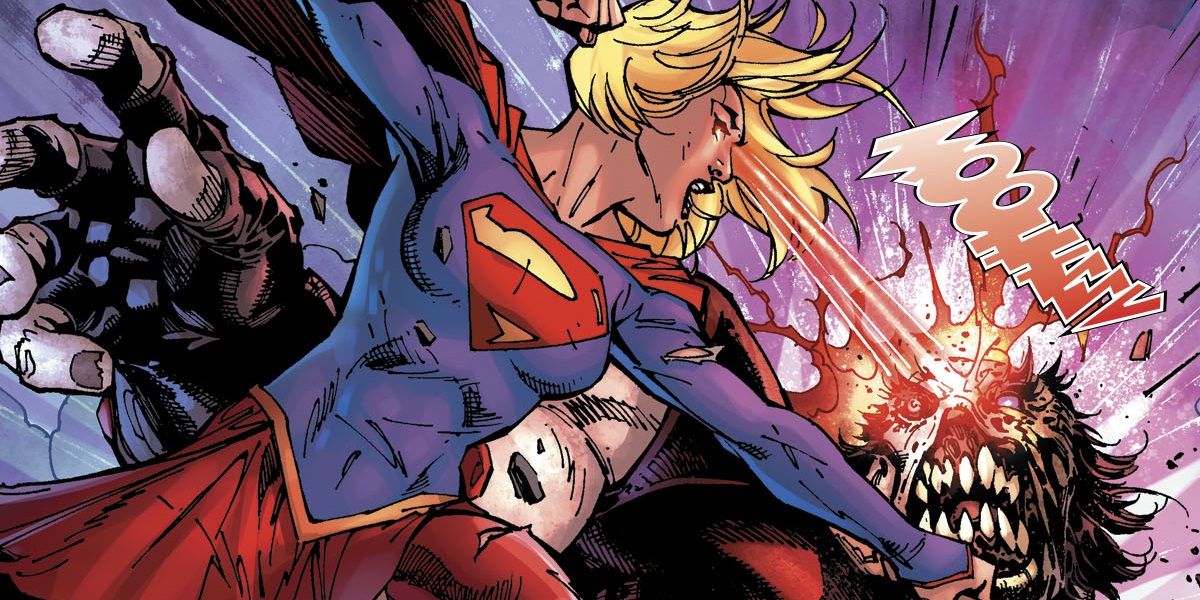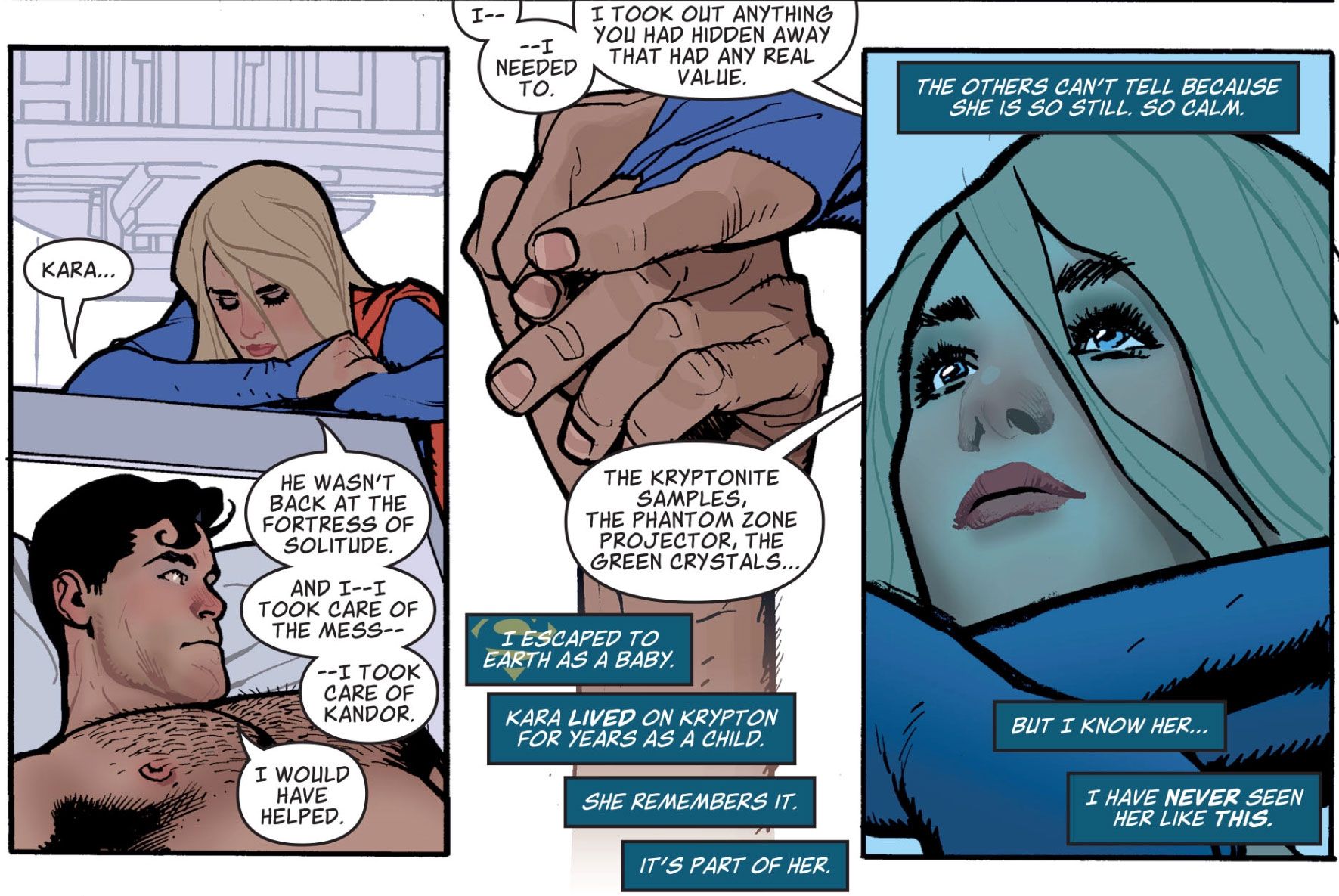warning: the following article contains major spoilers for man of steel #5, by brian michael bendis, adam hughes, ivan reis, and jason fabok, on sale now.
there's an old saying that it is better to have loved and lost than to never have loved at all. this adage is often contested against. the notion of never having experienced an event as being somehow worse than going through the experience only to have it end in a less-than-desirable manner speaks more to the uncertainly and reservations people have when trying something new. it’s armchair wisdom and holds about as much wisdom as kenny rogers’ poker playing guidelines. it’s arbitrary and almost impossible to quantify. what level of emotional turmoil hurts more? does the knowledge of a loss somehow hurt more than the experience of loss? well, as it turns out, no it doesn't.
that’s really the crux of how two of the most recognized superheroes in the entire world have processed the same event. superman and supergirl have their shoulders burdened with the their home world, krypton, being destroyed. all their history, literature, family members, iconography are gone (mostly). but unlike kal-el, supergirl has loved and lost. she had lived on krypton for years before its demise. she knew the kryptonian way of life, but unlike superman, she did not learn it from alien texts which need to be poured over to replicate some sense of familiarity. no, kara zor-el lived that life. she was, and is, a true kryptonian. superman, however, does not have this connection to krypton. he was jettisoned away before his own cognition. the only home he has ever known is kansas.
related: the man of steel #5 furthers the main event, but forgets everything else…or does it?
now, the itching feeling you are something more than what your whole life has been telling you must be a challenging and oft soul-crushing experience. the ghost of a memory haunting one's heritage is something that can define a person’s outlook on their own cultural identity. if someone were to emigrate from another country as an infant, where does that person’s cultural and ethnic identity lie when they are older? even for immigrants who often visit their home country and adopt cultures from the motherland can still grapple with a sense of belonging. now, image dealing with being of two “worlds” but one of them no longer esixts. and not in the way countries can dissolve or be amalgamated. that’s not what we’re talking about here (although that must be awfully difficult to process just the same). what if your homeland, the place where you were born is simply gone? there is no going back to visit distant relatives or spend a summer in the home your parents grew up in.
is there a word to properly encapsulate this situation? it is something which goes beyond the notion of refugees. and while both superman and supergirl are, in fact, refugees, their individual losses can be measured on different levels. when rogol zaar, the krytponian-murdering monster brian michael bendis has conjured up as the big bad in the man of steel, destroyed kandor, superman was enraged, and rightfully so. the miniature city held the remnants of the world his is from, but never knew. it’s the closest thing to “going home” he has ever had. but for kara, it was more than that.
related: man of steel #4 reveals what caused the rift in the kent family
for kara, the death of kandor and its inhabitants meant the death of what she once knew, first-hand. there’s a tender moment in the man of steel #5 where superman acknowledges this. he takes a step back from his own rage and grief and sees how this has affected his cousin. kal-el feels the guilt for not comforting her. the people of kandor were supergirl’s people more than they ever were to clark. it’s probably for the best that we don't read supergirl's internal monologue. in a comic book filled with loss, kara’s thoughts on the situation would just be salt in the wound.


